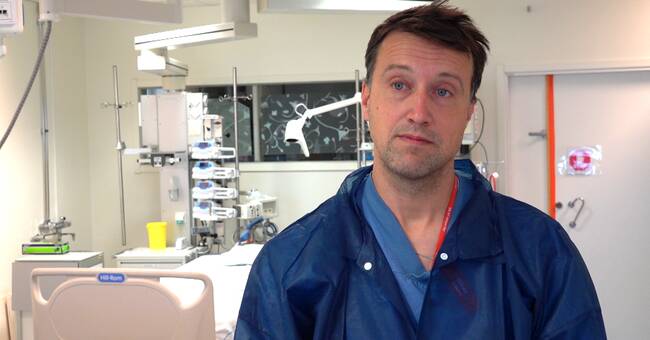However, there are other things that worry the staff.
A pandemic that has been difficult to predict and that there is still a proportion of the population who are unvaccinated.
- We trust the Swedish Public Health Agency very much.
If they think it's time to ease the restrictions, then we believe in it, says Niklas Larsson who is medical director at AnIVA at NUS.
Just six months ago, a record number of covid patients were treated at the county's hospital, a total of 76 people, of whom 20 were in intensive care.
Today, the situation looks much better.
Restrictions are lifted
The restrictions that disappear on September 29 do not think the staff should burden the emergency care too much, even if the spread of infection is expected to increase.
They reckon that most people who would become seriously ill and end up in intensive care are vaccinated.
- I think we will probably be able to see more cases when more people meet.
These are mainly younger, non-vaccinated people who usually do not get so ill.
But that they would be can happen, says Stephan Stenmark, infection control doctor in Västerbotten.
Other things to worry about
But on the other hand, there are other things that worry inside the intensive care unit.
- Of course we are worried about where the pandemic will go because it has turned out to be impossible to predict, says Niklas Larsson.
The staff wants to highlight how important it is for those who have still not chosen to get vaccinated to consider the matter.
- There is today a lot of overwhelming medical evidence that the vaccination is safe and that it is above all much safer than the alternative, to get covid. It also reduces the risk of becoming seriously ill in covid-19 and of being infected at all or of infecting someone else, says Niklas Larsson.

